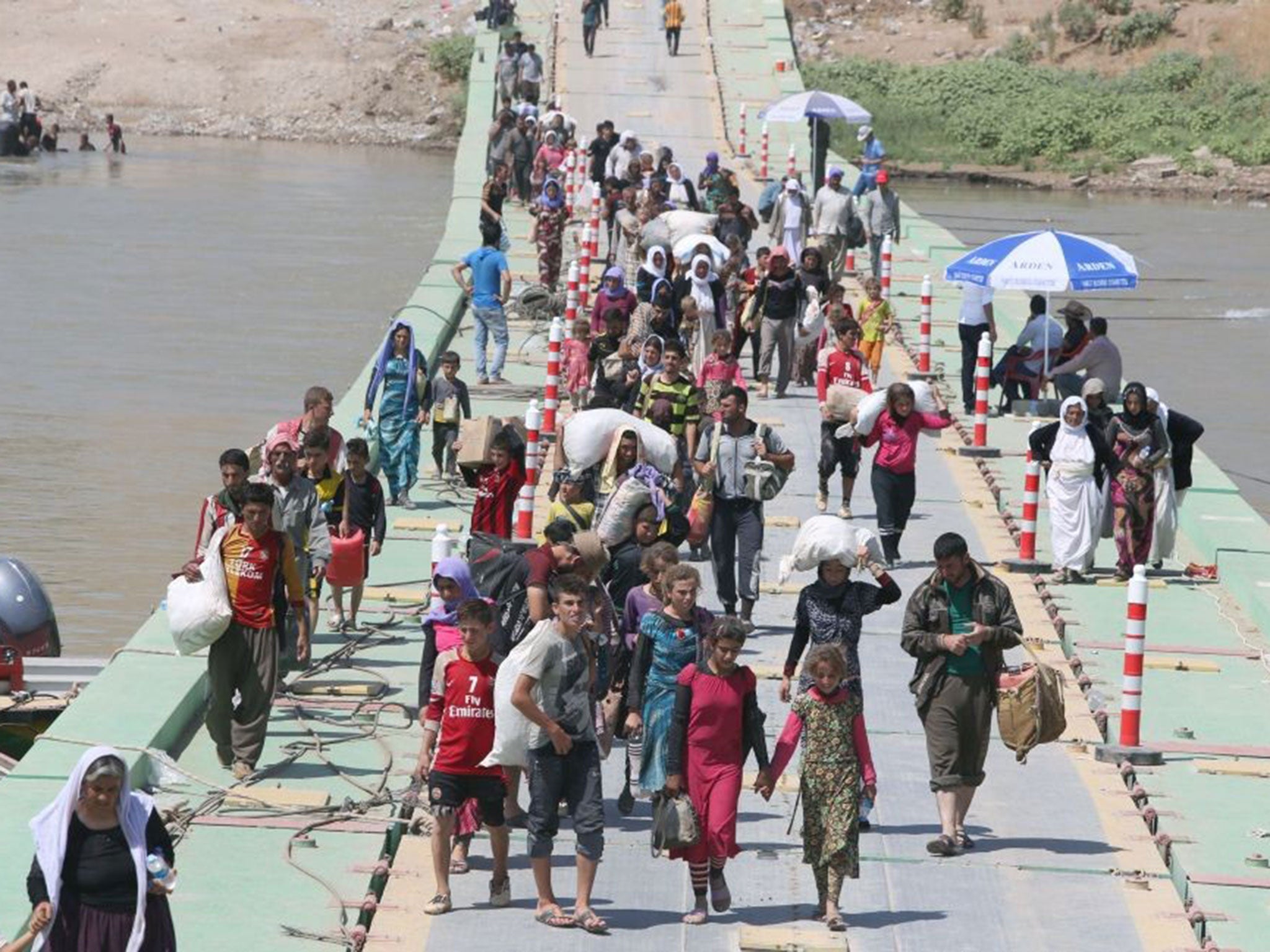Your support helps us to tell the story
From reproductive rights to climate change to Big Tech, The Independent is on the ground when the story is developing. Whether it's investigating the financials of Elon Musk's pro-Trump PAC or producing our latest documentary, 'The A Word', which shines a light on the American women fighting for reproductive rights, we know how important it is to parse out the facts from the messaging.
At such a critical moment in US history, we need reporters on the ground. Your donation allows us to keep sending journalists to speak to both sides of the story.
The Independent is trusted by Americans across the entire political spectrum. And unlike many other quality news outlets, we choose not to lock Americans out of our reporting and analysis with paywalls. We believe quality journalism should be available to everyone, paid for by those who can afford it.
Your support makes all the difference.Burnt by the sun, blistered with thirst and weak from exhaustion, thousands of Yazidis fled the mountain on which they had been trapped for a week, streaming into Iraq’s northern Kurdistan region after a harrowing escape from extremist fighters.
Hungry, thirsty and tired, they limped across a narrow bridge spanning the Tigris river on the Iraqi-Syrian border hauling their few belongings, some of them barefoot, others in sleeping clothes because they ran for their lives at night. It was the last leg of a nightmarish journey that some have not survived. Thousands are still stranded on the mountain, either because they are surrounded by Isis militants or are simply too weak to walk, according to those arriving in the remote Iraqi border post of Fishkhabour. Others have died trying to reach safety, falling by the wayside on the barren mountain for lack of food and water.
“We passed dead people on the way,” said Barakat Ghanem Hassan, 75, who walked for two days with his wife and their three-year-old grandson, Ayman.
The boy, who became sick on the journey and lay limply on the ground, his lips cracked from dehydration, was separated from his parents in the scramble to flee the advancing militants. Mr Hassan does not know whether they survived.
The exodus was touched off by an assault the Sunday before last by Isis against the north-eastern Iraqi town of Sinjar, where tens of thousands of members of the Yazidi faith live. They ran for their lives to Mount Sinjar, creating a humanitarian catastrophe that has captured the attention of the world.
Airdrops of food and water were followed by air strikes, including four last Friday that targeted Isis positions around the mountain.
The attacks helped at least some of the Yazidis escape, said Zaim Hassan Harmouch, 66, who said the bombings destroyed the militant positions that had blocked their route out. He led his wife, six sons and seven grandchildren down from the mountain overnight, crossing the border into a Kurdish-held region of Syria and then back into northern Iraq. “It was because of the planes that we could leave,” he said. “They opened the way.”
Mr Harmouch was among an estimated 50,000 Yazidis who fled the Isis assault on Sinjar, after the militants surged into town threatening to kill any of those who did not convert to Islam. He carried his wife on his back all the way, because her knees gave way.
The family took refuge on a barren patch of land, and for the last three days of their ordeal they survived by sharing bottle-cap amounts of water from the last of their meagre supplies. For three days, they did not eat.
After the strikes on Friday dispersed Isis fighters, Syrian Kurdish fighters with the PYD – an affiliate of the Turkey-based Kurdish Workers’ Party, or PKK – arrived to secure a passageway into Syria, then back into Iraq, he said.
But not everyone was strong enough to make the journey. “Some of the people we had to leave behind. The old, the sick – they cannot walk, and they are going to die,” he said.
Haji Qassem Ahmed, 29, left without his elderly parents, his wife and his baby daughter, who was born on the mountain three days ago because they were too weak to leave. “Tell America to help them,” he begged.
The PKK began escorting Yazidis to safety three days ago, but the trickle of refugees turned to a flood after the air strikes enabled those further south along the mountain to leave. Kurdish border officials said that by Sunday afternoon, more than 30,000 had crossed in the previous 24 hours.
Refugees straggled rather than surged across the bridge into Iraq, slumping on the stony ground in tired groups. Several women collapsed from exhaustion. Sick children lay gas-ping under the sun. And still the Yazidis were streaming over the bridge.
©The Washington Post

Join our commenting forum
Join thought-provoking conversations, follow other Independent readers and see their replies
Comments